| The Master of Bioethics and Global Health Program is an academic master’s degree program intended to provide academically qualified individuals who are dedicated to enhancing the status and quality of life of all global communities, the basic competent knowledge and creative and critical-thinking ability to improve global health.The MBGPH is the most popular degree program at AUSN because many AUSN faculty are global leaders in this field. The MBGPH course prepares students for roles as health professionals and community leaders in a multiethnic community, by sharing a cross-cultural perspective of bioethics through the diverse international advisory and adjunct faculty. The program draws upon the wide international experience of the resident and visiting faculty, as well as their multidisciplinary qualifications, to offer a cross-cultural program that has rapidly become the largest bioethics graduate degree program to be offered globally. The program assists in the training of leaders who can assist people to rediscover their indigenous values and apply these to contemporary moral dilemmas of medicine, science and technology and the environment, with the wisdom that cross-cultural faculty can provide. Intensive trainings are held in Asia, the Americas, Africa and Europe. | Download the full program pdf file to read more |
| Curriculum | |
| To complete the MBGPH program, students must satisfy the MBGPH course curriculum, which requires a minimum of 32 semester credit hours. The MBGPH program can be completed by either full-time or part-time study, and accordingly, can be completed within one to two years of study (480 clock hours of instruction). |
Compulsory Courses (26 credit hours)
| 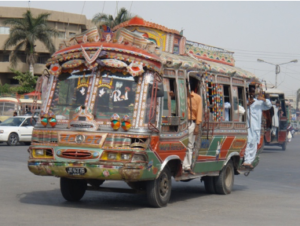
Follow the link to view some example video lectures from many of these courses. ,
|
Elective Courses (select at least 6 credit hours)
| |
| Required Core Competencies and the Syllabus of Courses are provided in the course description linked pdf file (AUSN-MBGPH-Description). Further information on Admissions, Scholarships, other Degrees, dissertation titles, the Modality of the Lectures, Credit Transfer, and general information are provided on this website and in the Catalog. Inquiries to provost@ausovereignnations.org |
| Featured alumni from this program | |
| Ms. Lian Bighorse, San Carlos Apache Nation, USA Oak Flat is our Holy Ground: Interviews with Members of Occupation Oak Flats (Residential program) | 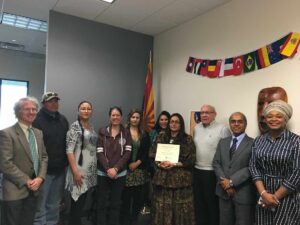 |
| Ms. Carmela M. Roybal, Tewa Nation, USA Is Social Capital a Protective Factor Against Prescription and Illicit Drug Overdose Death? (Residential program) | 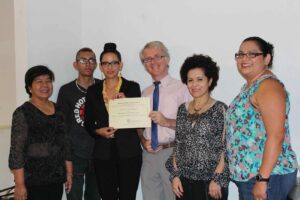 |
| Dr. Lara López Hernáez, Spain Can happiness be taught? Results of Mindfulness training among teachers in the San Carlos Apache Tribe Headstart program (Residential program) | 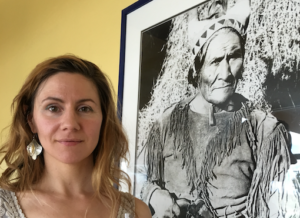 |
| Ms. Laura Ballantyne-Brodie, Australia Earth System Ethics: A Systems Approach to Ethics for Our World | 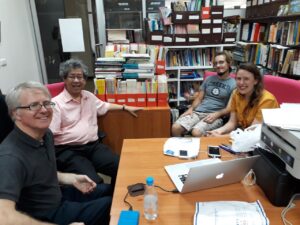 |
| Dr. Rhyddhi Chakraborty, India
Water Ethics in India | 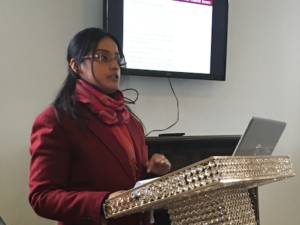 |
| Dr. Mahmood-Uz-Jahan, Bangladesh Awareness of Ethics Among Medical Doctors in Bangladesh | 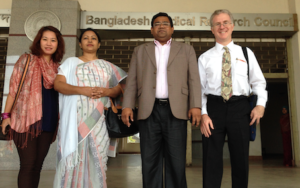 |
| Mr. Ranjan Aryal, Nepal Bioengineering and Ecosystem Modification to Reduce runoff in disturbed lands and Mitigate Disasters | 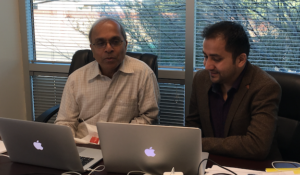 |
| Ms. Tanya Ahmad, Bangladesh Ethical and Moral Considerations for Road Safety in Bangladesh | 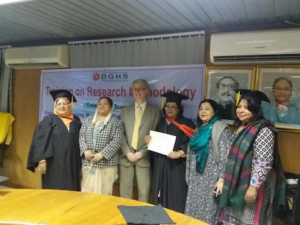 |
| Dr. Maria Ayuk, Cameroon Environmental Conflicts in the NIger Delta within the Context of Human Rights and Indigenous Knowledge Systems | 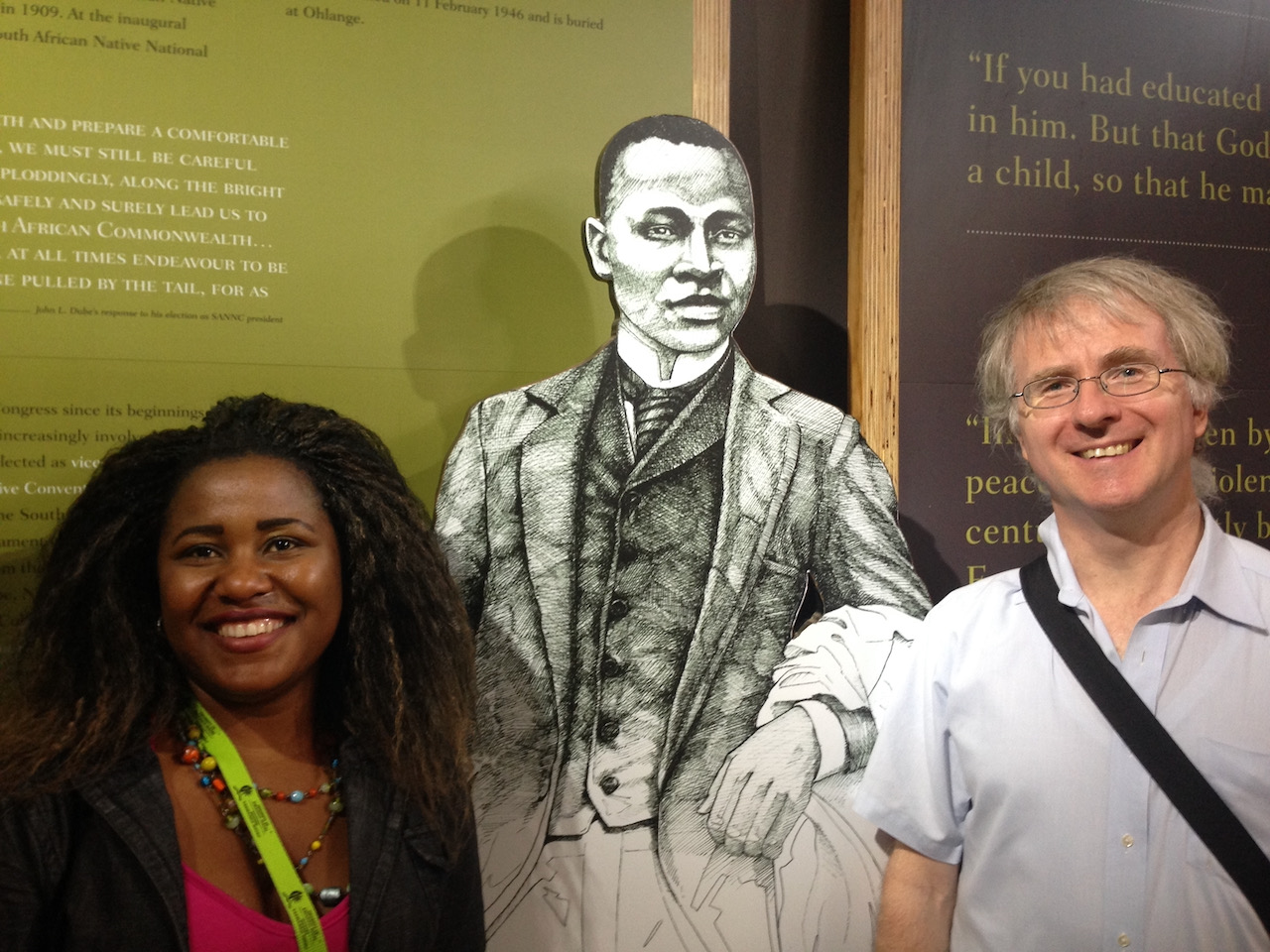 |
| Dr. Wardatul Akmam, Bangladesh: Desires of Parents regarding Gender of Children: A Study of a Village in Northern Bangladesh
Dr. Arif Hossain, Bangladesh: An Islamic (Shia) Perspective on Good vs. Evil, Peace, Conflict and the Apocalypse Dr. Md Fakrul Islam, Bangladesh: Assessing Quality of Life of the Rural Elderly in Bangladesh | 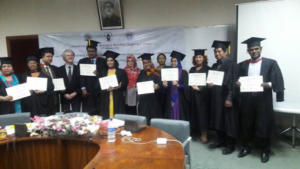 |
| Dr. Mohammad Rashedul Islam, Bangladesh: A study on service availability and readiness assessment of non communicable diseases using the WHO tool for Gazipur District in Bangladesh Mr. Maruf Hassan Pulok, Bangladesh:Juvenile delinquency influenced by familial environment | 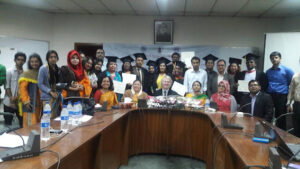 |
| Dr. Jobair Alam, Bangladesh: A Critical Assessment of the Ethical Approaches to Environmental Legislation in Bangladesh with an Emphasis on Biodiversity Dr. Shahanaz Chowdhury, Bangladesh: End-of-life care in the adult intensive care unit: Attitude and practices of critical care of physicians and nurses Dr. Shahana Dastagir, Bangladesh: Informed consent in dental practice in Bangladesh – A survey on dental practitioners’ knowledge, attitudes and awareness Ms. Ananya Tritipthumrongchok, Thailand: Fortune Telling as Mental Health Support | 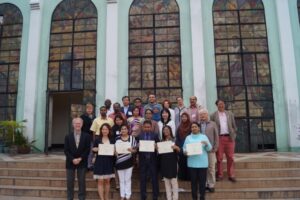 |
| Mr. Leonard H. Le Blanc III, USA: Ethical Dilemmas of Delegating the Public Use of Force to Private Companies: Blackwater and Other Private Security Companies Operating in Iraq During Gulf War II (GWII), Mr. Muslihudin Sharbinie, Indonesia: Self-efficacy of Vocational Health School Students in Conducting Double Education System in Public Health in Bogor District West Java, Indonesia | 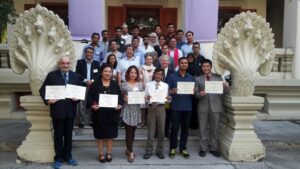 |
| Dr. Angelica Baylon, the Philippines: Practices of Traditional Medical Practitioners in Bataan, the Philippines Mr. Rimesh Khanal, Nepal: Comparison of Ethical Values of Children and Youth in Nepal and Mexico (Residential program) | 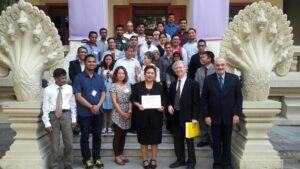 |
| Ms. Parivash Malekshamran Garza, Mexico Redignifing the Concept of Latin American Migrants entering into the United States of America | 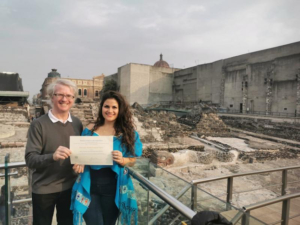 |
| Ms. Charlotte Omayan Gapasin, Qatar
Accessible Tourism as a Driver of Economic Growth, Environmental and Social Equity | 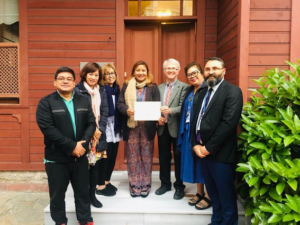 |
| Ms. Ya Min Thu, Myanmar An Ethical and Scientific Analysis of the Potential Utilization of Nuclear Reactors for Energy Production in Developing Countries | 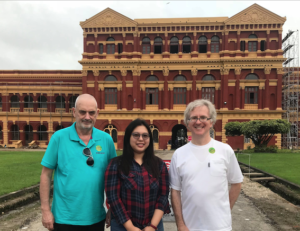 |
| Mr. Chadwick Bastida Tan, the Philippines Laudato Si: Awareness, Perspectives, and Consequences on Environmental morale and motivation in a Catholic University | 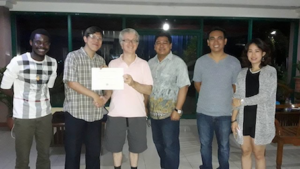 |
| Dr. Hasan Erbay, Turkey Herding Cats: An Ethical Review for Pre-hospital Emergency Triage, Triage Systems, Tools and Algorithms | 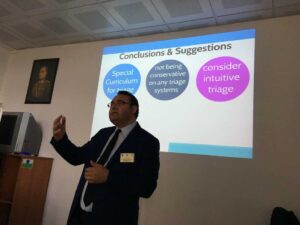 |
| Mr. Bibek Adhikari, Nepal Youth volunteers in post-disaster rehabilitation and reconstruction | 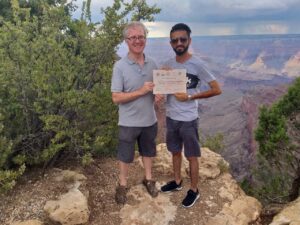 |
| Dr. Miko Ferine, Indonesia Exploration of the Breaking Bad News Process: Doctor’s Experiences in Banyumas Regency, Indonesia, Miko Ferine | 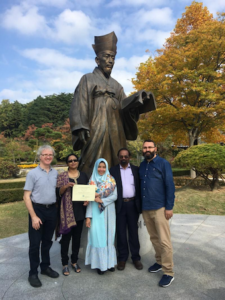 |
| Dr. Septi Dewi Rachmawati, Indonesia Exploration study on Nursing students’ first experiences in conducting phenomenological qualitative research among people and families with vulnerabilities in Indonesia | 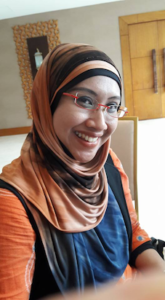 |
| Ms. Dolma Lama, Nepal Indigenous Peoples’ Movements in Nepal (1990-2015) | 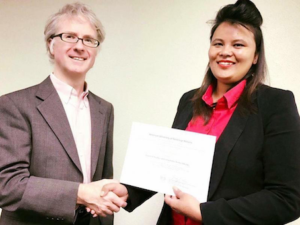 |
| Dr. Frilya Rachma Putri, Indonesia Exploration of Experience of Javanese People with Schizophrenia with History of Having Involuntary Treatment in Psychiatric Management | 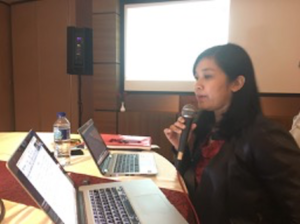 |
| Ms. Nydja Mercer-Bey, USA Sexual violence against Native American women (Residential program) | 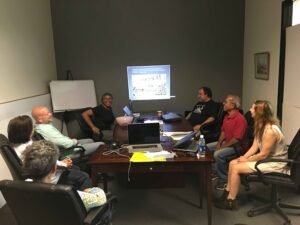 |
| Ms. Lana A. Issa Al-Shareeda le Blanc, Iraq A Comparative Study of Refugee Syrian School Children in Turkey, Lebanon, Jordan, Iraq and Egypt: Out-Of-School Children that led to the ‘Lost Generation’ | 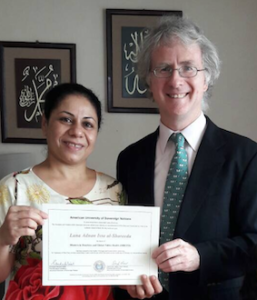 |
| Ms. Margaret Columba M. Baylon, the Philippines Perception of the Workforce in an Academic Setting as AUSN: How five generations work together | 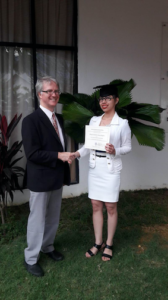 |
| Ms. Lata Sitake, Tonga; Lakota Nation, USA Linkages of Outcomes in Success and Educational Achievement in Native American Communities (Residential) | 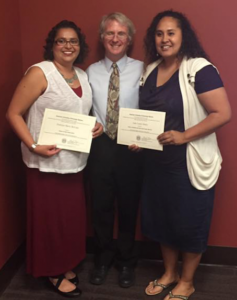 |
| Dr. Saeideh Sayari, Iran: Abortion law in Muslim communities: Lack of a comprehensive perspective on harmful pregnancy Dr. Abbas Kharabi Masouleh, Iran: Blindness as disability: Issues in relationship with human rights and human dignity | 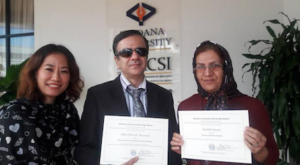 |
| Ms. Feby Basco Lunag, the Philippines: Ethical Analysis and Situation of Teenage Pregnancy in Irisan Baguio City Mr. Ariel Calugay Bacani, the Philippines: Ethical concerns on the implementation of Solo Parent Act (RA 8972) in the Philippines | 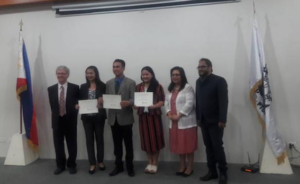 |
| Ms. Joella Molina Estrada, the Philippines Ethical Issues of Family Presence in the ICU and During Resuscitation | 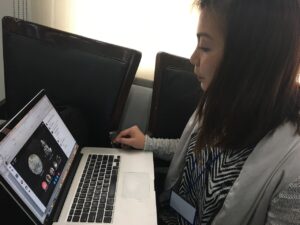 |
| Ms. Tarana Ahmed, Bangladesh Improved Lifestyle of Child Domestic Workers: Decreases Street Beggars in Bangladesh | 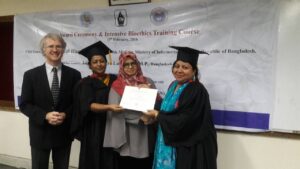 |
| Lalitha Murali, USA
Student Stress in Elementary and Middle Schools | 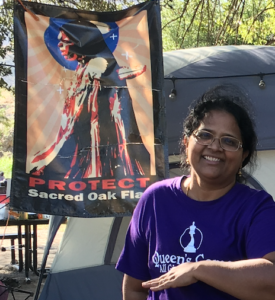 |
| Ms. Tamjida Ahmad, Bangladesh Peace Building in a Multicultural Society: The Role of Religious Leaders in Malaysia | 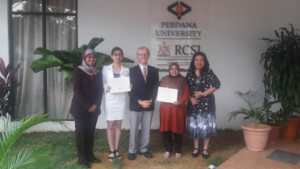 |
| Mr. Muhammad Ziaul Huq, Bangladesh Ethical and public health issues of chemicals in foods in Bangladesh |  |
| Mr. Ronnie John D. Barrientos, the Philippines An Analysis of Gender Mainstreaming in General Santos City, the Philippines | 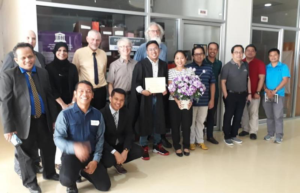 |
| Mr. Ramji Sapkota, Nepal Environmental Effects on Immunization Programs in Baglung District, Nepal | 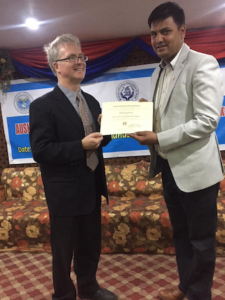 |
| Dr. Tonmoy Biswas, Bangladesh Pharmaceutical Incentives and Medical Ethics: Attitudes of Future Doctors of Bangladesh | 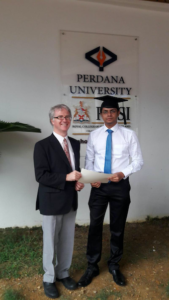 |
| Mr. Bikash Thapa, Nepal
Bases of Early Marriage and Consequences on the Well-being of Mother and Child in Jhirubas, Palpa, Nepal | 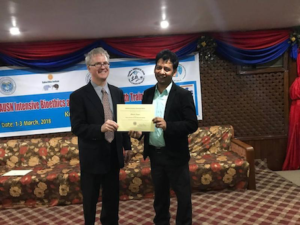 |
| Mr. Bellarmee Lumbwe Milosi, Democratic Republic of Congo
Social justice advocacy and its challenges: Case study of International African volunteers serving in the Asia-Pacific Region | 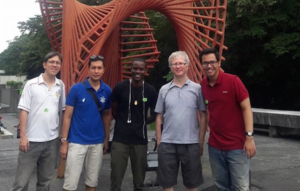 |
| Dr. Rajib Biswas, Bangladesh Ethical Issues Relating to Sexual and Reproductive Knowledge Seekng Bahaviour of Adolescents in Bangladesh | 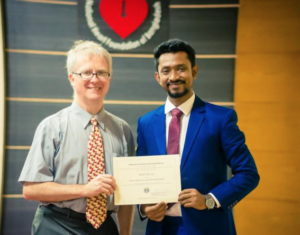 |
| Dr. Yeremias Jena, Indonesia
A Study of the Ethics of Body Commodification, Elderly Care, Vulnerability and Organ Donation in the Context of Health Care in Indonesia | 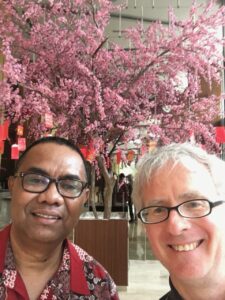 |
| Ms. Tayebeh Kharestani, Iran
Designing an experience to recall positive memories in order to improve mental health | 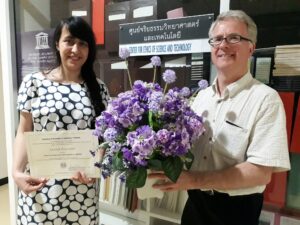 |
| Dr. Josephine Joseph Mwakisambwe, Tanzania
Ethics and Risk Factors for Esophageal Cancer and Awareness of Cancer Related Health Services Among Adults in Rural Kilimanjaro, Tanzania: A Prerequisite for Cancer Down Staging | 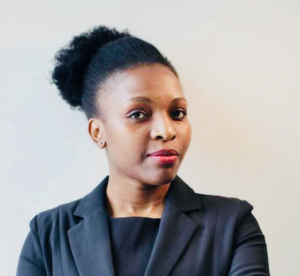 |
| Mr. Atanasio Fabrino, Mozambique Bioethics and Community Engagement to enhance Community Health within Mozambican Communities: Case study of Cabo Delgado Province | 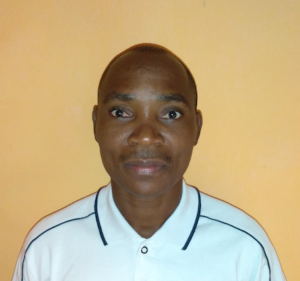 |
| Dr. Mohd Salim Mohammad, Malaysia
Integrating bioethics, religious and cultural values to construct ethical policy and educational strategies in Malaysia | 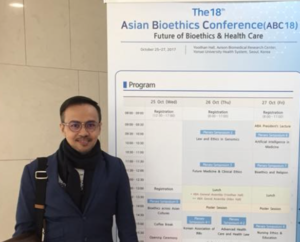 |
| Rev. A. Sebastian Mahimairaj, India The Socio-Economic Conditions of Rag Pickers In Tripur City, Tamilnadu | 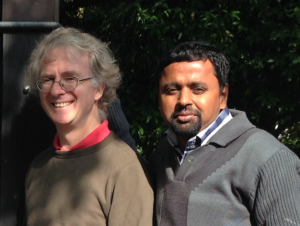 |
|
Dr. Michael Anjello Rajan, India The Status of the Third Gender in Tamil Literature and the Current Scenario in Selected Districts of South Tamil Nadu | 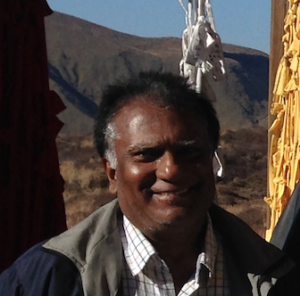 |
| Dr.Dyah Woro Dwi Lestari, Indonesia
Nurturing Medical Student’s Empathy and Compassion throughout Community Service Program | 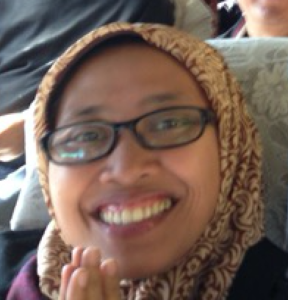 |
| Mr. Olumide Odeyami, Nigeria Food safety knowledge, attitudes and practices among consumers in developing countries | 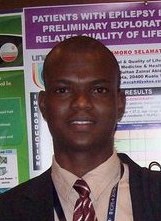 |
| Ms. Mahta Baratipour, Iran An Exploration of Some Ethical and Social Implications of Art |  |
| Dr. Uwimana Alexandre, Rwanda The Impact of COVID-19 Pandemic on Psychological Well-being of African Students in Chinese Universities) | 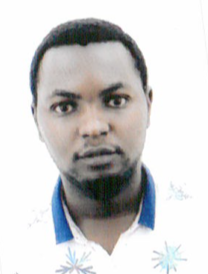 |